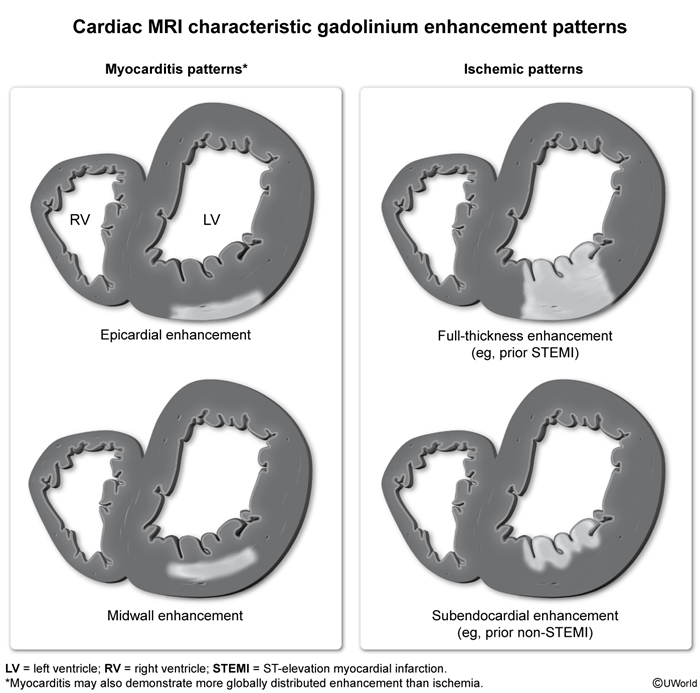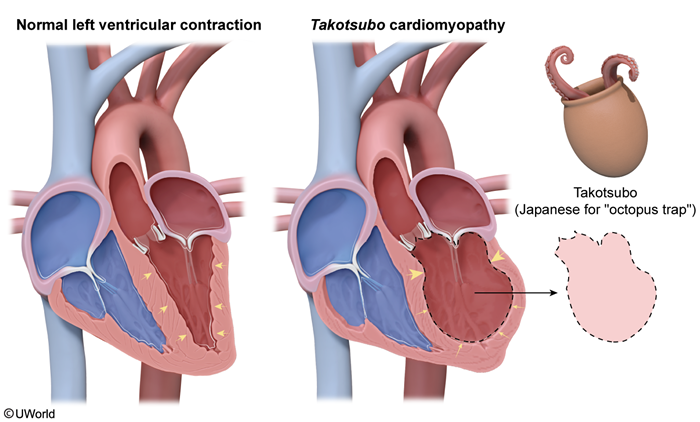Myocarditis
Article Sections
Introduction
Myocarditis is an inflammatory condition of the myocardium that can be triggered by both infectious and noninfectious causes (Table 1). The clinical presentation and course of disease are highly variable, ranging from asymptomatic disease that resolves without clinical detection to serious illness with life-threatening complications.
Pathophysiology
Viral infection is the most common cause of myocarditis, with viruses, including coxsackievirus, adenovirus, and influenza virus, having been implicated. An inadequate initial immune response may allow a virus to invade and persist within cardiomyocytes, causing ongoing inflammation with resulting myocardial damage and often contractile dysfunction. Other causes of myocarditis generate a similar inflammatory response, with infiltration of immune cells and release of inflammatory cytokines leading to myocardial damage.
Pathology
The histopathology of viral myocarditis typically shows
Continue Learning with UWorld
Get the full Myocarditis article plus rich visuals, real-world cases, and in-depth insights from medical experts, all available through the UWorld Medical Library.
Unlock Full AccessFigures

